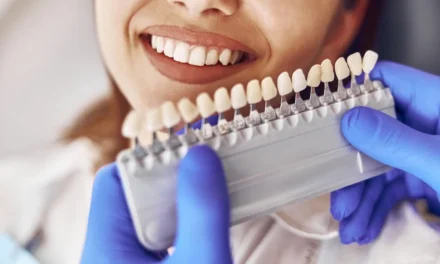Pain from wisdom teeth, why does it happen?

What are Wisdom Teeth?
The wisdom teeth, also known as third molars, are the four teeth located at the back of the mouth. These teeth usually erupt between the ages of 17 and 25, and often can cause pain and discomfort. Wisdom tooth pain is a common problem that can affect people of all ages. The pain can be sharp, stabbing, or dull, and can be felt in the area of the wisdom tooth, the jaw, the head, the neck, or the gums.
Why Do Wisdom Teeth Hurt?
Wisdom tooth pain can manifest in different ways and have various causes:
Jaw Pain:
- Description: Discomfort in the jaw can manifest in various forms, such as sharp, stabbing, or dull pain, especially in the area where the wisdom tooth is erupting. Causes:
- Lack of Space: When there is insufficient space in the mouth, the wisdom tooth may erupt incorrectly, exerting pressure on the jaw and causing pain.
- Pressure on Nerves: Pressure from the wisdom tooth on the mandibular nerve can cause painful sensations, numbness, or tingling in the jaw.
Headache:
- Description: Headaches can occur acutely or as a dull ache, commonly located in the temples and forehead, especially when a wisdom tooth is involved. Causes:
- Infection: An infected wisdom tooth can trigger inflammation, which in turn causes headaches.
- Pressure on Nerves: Pressure from the wisdom tooth on the trigeminal nerve can be another cause of headaches.
Neck Pain:
- Description: Neck discomfort can vary from acute to dull, mainly focusing on the back of the neck, especially during the eruption of the wisdom tooth. Causes:
- Inflammation: Inflammation of the tissues around the wisdom tooth can cause neck pain.
- Posture: The position of the head during the eruption process can lead to muscle tension and, consequently, neck pain.
Gum Pain:
- Description: Gum discomfort can present as sharp, stabbing, or dull pain, focusing on the area around the wisdom tooth. Causes:
- Inflammation: The eruption of the wisdom tooth can cause inflammation in the gums.
- Infection: Infection of the gums surrounding the wisdom tooth can cause pain, redness, and swelling.
Pain After Extraction:
- Description: Pain following wisdom tooth extraction can be diverse, ranging from acute to dull, and is located in the area where the extraction was performed. Causes:
- Trauma: The extraction procedure can cause pain and inflammation due to trauma to the area.
- Healing: The tissue healing process after extraction can be another cause of pain.
Types of Wisdom Tooth Pain:
- Acute Pain: This type of pain is quite common and is characterized by a sharp or throbbing sensation in the area near the wisdom tooth.
- Dull Pain: It is a constant and less intense pain than acute pain, which may persist for prolonged periods.
- Ear Pain: It may result from the pressure exerted by the wisdom tooth on the trigeminal nerve, causing discomfort in the ear.
- Headache: Inflammation of the tissues around the wisdom tooth can cause headaches, especially in the temples and forehead.
- Throat Pain: Inflammation of the tonsils due to the eruption of wisdom teeth can cause throat discomfort.
- Neck Pain: It can be caused by inflammation of the tissues around the wisdom tooth or by adopting an uncomfortable posture to alleviate pain.
To prevent wisdom tooth pain, it is essential to take some steps:
- Regular Dental Visits: It is crucial to visit the dentist regularly so that they can monitor the eruption of wisdom teeth and detect potential problems in time.
- Maintain Good Oral Hygiene: Brushing your teeth twice a day and flossing helps prevent inflammation and infection around wisdom teeth.
- Adopting a Healthy Diet: A diet rich in fruits, vegetables, and water strengthens both teeth and gums, reducing the risk of complications.
- Avoid Harmful Habits: Quitting smoking, limiting the consumption of sugary drinks, and avoiding chewing hard objects are measures that help prevent cavities and other dental problems.

It is important to clarify some common myths about wisdom teeth:
- Not all wisdom teeth require extraction; only those causing problems need intervention.
- Although some wisdom teeth may have long roots, this is not always dangerous or indicative of the need for extraction.
- There is no specific age for wisdom tooth extraction; the decision depends on the individual situation of each patient.
Regarding home remedies recommended by dentists once you go for a consultation, the following are highlighted:
- Saltwater Mouthwashes: Rinsing with warm salt water can reduce inflammation and infection.
- Cold Compresses: Applying cold compresses to the affected area helps relieve pain and inflammation.
- Over-the-Counter Pain Relievers: Medications such as ibuprofen or acetaminophen can provide temporary relief.
Wisdom teeth can cause discomfort and pain, which manifest themselves in a variety of ways and affect areas such as the jaw, head, neck and gums. To prevent these discomforts, it is essential to adopt measures such as maintaining good oral hygiene, visiting the dentist regularly, following a healthy diet and avoiding harmful habits.
It is important to consult a dentist for an accurate diagnosis and to determine the appropriate treatment for each case. We recommend Bridlewood Dental Clinic.


